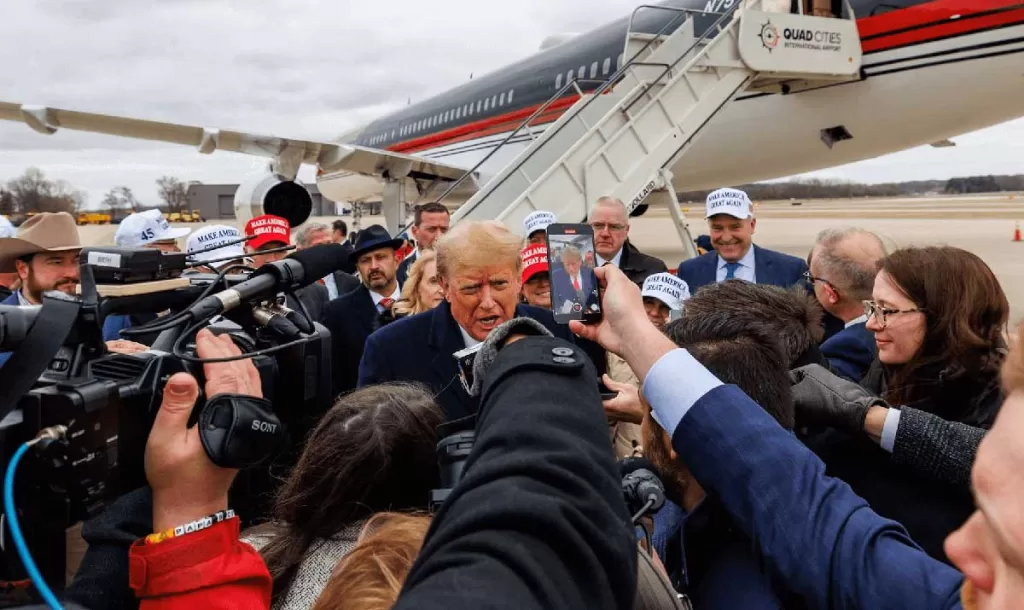Will the victory of Donald Trump benefit the Pak-US relations? How will the upcoming events of Pakistan unfold with the rise of Republican rule in the USA? To be clear, Trump’s first term did not have many positive implications for Pakistan, rather he sought help from the PTI government to get out of Afghanistan tactfully. The present domestic dynamics of Pakistan are of no interest to the USA, as Trump’s victory speech pointed towards making America magnificent with the new slogan of “Dream Big Again!” There is much more probability that Trump will take forward Biden’s policy of low-intensity engagement with Pakistan.
Trump’s policies are much more aimed at improving the image of the US and improving the way, it perceives and is perceived by the rest of the world. Its center of attention is what a state has to offer to America now. His policies are a one-man show and he has an “America First” approach. For a struggling import-dependent country like Pakistan, another tenure of Trump depicts an inclination for security matters rather than economic or political development. Moreover, there are speculations that Trump might not pay heed to matters of environmental security such as climate change, making it vulnerable for countries that are at the receiving end of repercussions of global warming and climate change.
In Trump’s eyes, China is the biggest competitor of the US and all the necessary efforts were taken to contain it, including intensified trade wars. Such a scenario puts fog on Pak-US relations as there might be room for pressure from the US on Pakistan to limit cooperation with China. According to some experts, the victory of Trump could throw serious challenges for Pakistan on the foreign policy and economic front. Expert economists warn that the economic policies of Trump including increased immigration restrictions, proposed tariffs, and tax cuts can be problematic for Pakistan. The depreciating rupee becomes the fuel to the fire in this scenario.
For instance, Trump has promised to increase tariffs on Chinese goods, something that may trigger a new trade war, negatively impacting the global economy. The incoming president may also target President Xi’s Belt and Road Initiative; which Pakistan is part of. Some experts fear that Washington may use the IMF’s leverage to arm-twist Pakistan on China. As per his first term record, Trump has an evident bias towards India to counter-balance China in the Indo-Pacific region. Pakistan is at stake as it becomes crucial for the state to maintain balanced diplomatic relations with Trump’s America.
Back in 2016, Trump called Pakistan’ a great country’ during a phone call with Mian Muhammad Nawaz Sharif. Then, during his electoral campaigns, he raised questions about Pakistan’s role in counterterrorism and its nuclear weapons. Later in 2018, during Imran Khan’s visit to Washington, Trump hosted him as ‘a great friend’. Such unpredictable politics and policies of Donald Trump make it problematic for Pakistan to survive in an environment where hostility with India travels in the air and there is always uncertainty in the geopolitical atmosphere.
No doubt, the post-military withdrawal from Afghanistan aligns the US policies for Pakistan with particular and defined interests. Moreover, Pakistan might be congratulating Trump on his victory but would remain worried for a long time because of the possible impacts of this transitioned bilateral ties. More or less, there are speculations of the continuity of Biden’s policies and approach by Trump and so, there will be efforts to pursue a cohesive yet limited partnership between the USA and Pakistan.
On the other end of the tunnel, there is still light. Pakistan has opportunities to reshape its policies regarding the USA while considering its position in the Indo-Pacific region as relying solely on regional alliances is not a very strategic approach for Pakistan. To gain better opportunities in the future, Pakistan ought to work on mending the love-hate relationship with the new Trump’s US, only then can Pakistan survive in this environment of foes on both sides. This pivotal time calls for bold decisions from Pakistani leadership: rethinking traditional approaches and exploring innovative diplomatic strategies could pave the way for a more effective engagement with both Washington and regional dynamics moving forward. Undoubtedly, the trajectory of Pakistan’s future will be predominantly shaped by global economic forces, particularly those that have a significant control on currency fluctuations and inflationary pressures, surpassing the influence of any individual leader’s foreign policy agenda.
